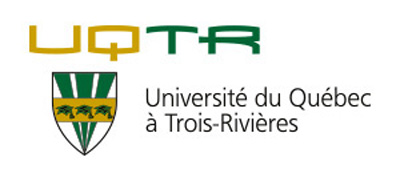Related projects
Discover more projects across a range of sectors and discipline — from AI to cleantech to social innovation.
Mitacs brings innovation to more people in more places across Canada and around the world.
Learn MoreWe work closely with businesses, researchers, and governments to create new pathways to innovation.
Learn MoreNo matter the size of your budget or scope of your research, Mitacs can help you turn ideas into impact.
Learn MoreThe Mitacs Entrepreneur Awards and the Mitacs Awards celebrate inspiring entrepreneurs and innovators who are galvanizing cutting-edge research across Canada.
Learn MoreDiscover the people, the ideas, the projects, and the partnerships that are making news, and creating meaningful impact across the Canadian innovation ecosystem.
Learn MoreRibosome biosynthesis is one of the most multifaceted and energy-demanding processes in biology. It involves over 250 factors that transiently associate with the nascent pre-ribosome in a well-orchestrated manner. Importantly, increased ribosome biogenesis has a critical role in cancer initiation and progression. Owing to the advances in cryo-electron microscopy, this pathway’s detailed mechanism started to be revealed, setting the grounds for new therapeutic interventions. The current project seeks to develop chemical probes for WD repeat proteins, a new drug target class. We are particularly interested in targeting WDR12 and WDR55—key components of a nucleolar complex that affect the large ribosomal subunit’s maturation. In this project, we will combine the latest advances in super-resolution microscopy and cell biology to assess WDR12 and WDR55 protein function and interaction networks in cells. Next, binding of inhibitors to the target proteins will be tested using a variety of techniques to establish compound activity and selectivity. Finally, inhibitors will be used to investigate their biological function in nucleolar regulation and glioblastoma tumorigenesis – the most aggressive type of brain cancer. The development of these inhibitors will reveal insights into the biology of this intricate pathway and may provide clinical-translational opportunity for glioblastoma treatment.
Dalia Barsyte-Lovejoy
Raquel Arminda Martinez Machado
Structural Genomics Consortium
Pharmacy / Pharmacology
Professional, scientific and technical services
University of Toronto
Elevate
Discover more projects across a range of sectors and discipline — from AI to cleantech to social innovation.
Find the perfect opportunity to put your academic skills and knowledge into practice!
Find ProjectsThe strong support from governments across Canada, international partners, universities, colleges, companies, and community organizations has enabled Mitacs to focus on the core idea that talent and partnerships power innovation — and innovation creates a better future.













































































































































































































































































































